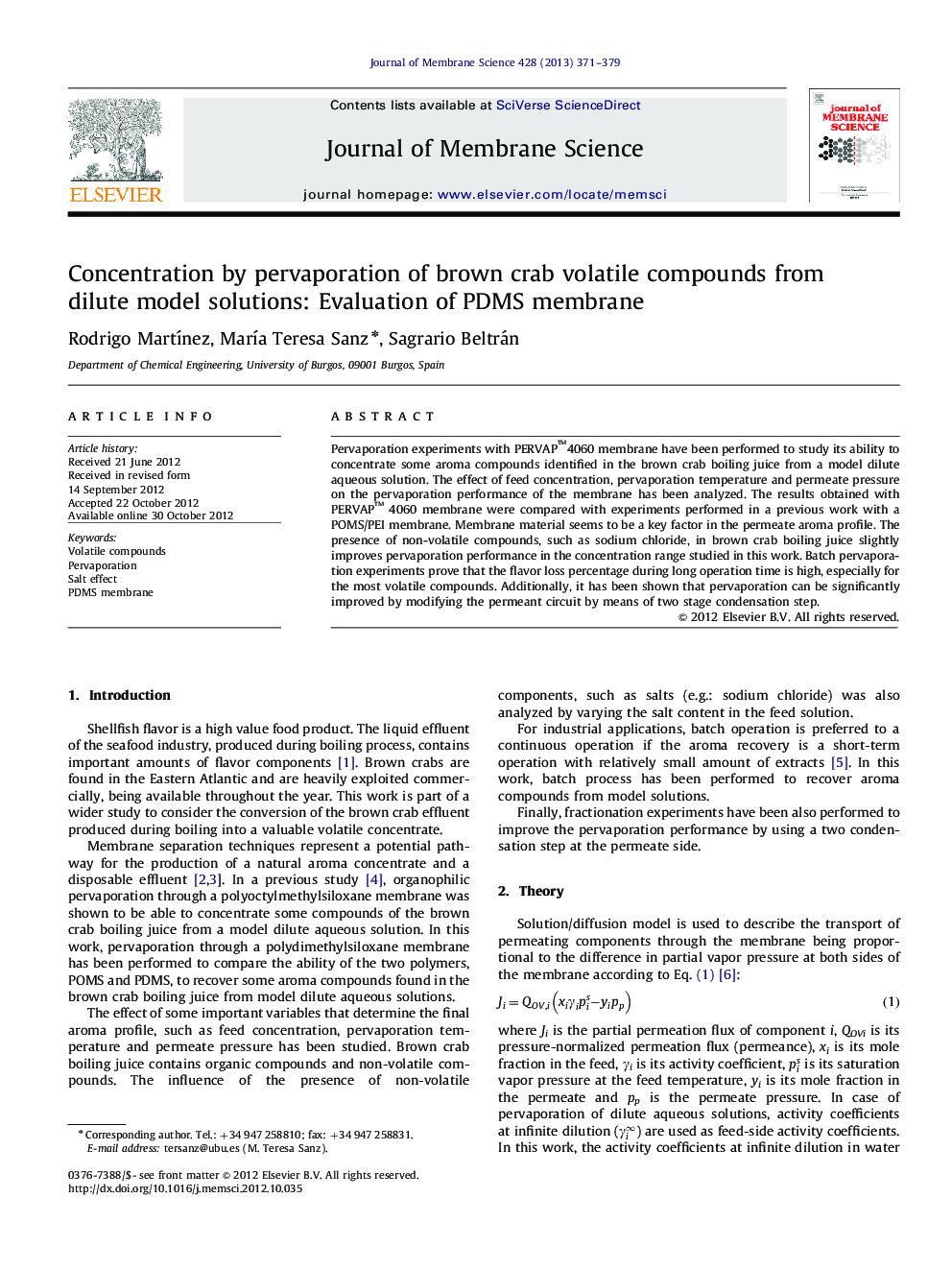| Article ID | Journal | Published Year | Pages | File Type |
|---|---|---|---|---|
| 634631 | Journal of Membrane Science | 2013 | 9 Pages |
Pervaporation experiments with PERVAP™4060 membrane have been performed to study its ability to concentrate some aroma compounds identified in the brown crab boiling juice from a model dilute aqueous solution. The effect of feed concentration, pervaporation temperature and permeate pressure on the pervaporation performance of the membrane has been analyzed. The results obtained with PERVAP™ 4060 membrane were compared with experiments performed in a previous work with a POMS/PEI membrane. Membrane material seems to be a key factor in the permeate aroma profile. The presence of non-volatile compounds, such as sodium chloride, in brown crab boiling juice slightly improves pervaporation performance in the concentration range studied in this work. Batch pervaporation experiments prove that the flavor loss percentage during long operation time is high, especially for the most volatile compounds. Additionally, it has been shown that pervaporation can be significantly improved by modifying the permeant circuit by means of two stage condensation step.
► Membrane material greatly affects the aroma profile. ► The effect of temperature depends on membrane polymer. ► The presence of salts affects the pervaporation performance. ► Two stages condensation leads to much higher enrichment factor.
